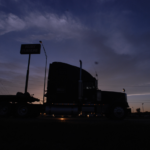Tow Truck Operators Overlooked Link in Accident Response Chain
Drivers can endure mental, financial strain when removing wrecksVehicles collide on a well-used stretch of highway; a single car goes off a back road in the middle of the night. Auto accidents happen every day, caused by weather or sudden mistakes, and scenes of inconvenience or tragic devastation are quickly encircled by police cruisers, fire engines, ambulances and, waiting nearby, a tow truck or two.
Like other first responders, tow operators are subjected to many of the shocking sights faced by law enforcement officers, firefighters and emergency medical technicians, which is simply part of a job many of them continue to do despite the possibilities of mental and physical strain, but also risks to their financial health.
While emergency personnel who try to save lives and maintain order are certain to be paid, tow truck operators can go without compensation for their efforts clearing wrecked vehicles from accident scenes.
Doug Merrill is one of hundreds of operators in Maine who has dealt with [...]
Anyone ordering a new heavy-duty truck this summer will have wait until sometime next year to get it, assuming strained manufacturing supply chains hold together.
An unprecedented run of orders for big rigs has pushed the backlog at truck factories to nine months, according to industry analysts, the largest since early 2006, when truckers stocked up to get vehicles in place before tougher environmental restrictions would take effect. Typically the backlog is about five months for the truck industry’s manufacturers, analysts said.
“It is longer than it should be,” said Magnus Koeck, vice president of marketing for Volvo AB’s North America operation, where Class 8 truck orders this year soared to 25,000 from 11,000 during the first six months of 2017. “Of course we are not alone in this situation,” he said. “Everyone is in the same boat.”
North American freight-haulers ordered more than 300,000 Class 8 trucks in the first seven months of this [...]
The Federal Motor Carrier Safety Administration has granted a waiver to allow drivers and carriers to mount a GPS on the windshield within the areas allowed for “vehicle safety technology” devices.
Traditional Trucking Corporation, in its application in March, stated  GPS devices are “approximately the same size as the currently allowed ‘vehicle safety technologies’ mounted on the windshield” and added that the dash “is not suitable for mounting the fixture to hold the GPS unit” and the location of the unit if mounted on the dash is in the same area that safety technology is currently allowed.
GPS devices are “approximately the same size as the currently allowed ‘vehicle safety technologies’ mounted on the windshield” and added that the dash “is not suitable for mounting the fixture to hold the GPS unit” and the location of the unit if mounted on the dash is in the same area that safety technology is currently allowed.
The five-year waiver applies to any motor carrier mounting a GPS on the windshield. The waiver allows the mounting of GPS devices no more than four inches below the upper edge of the area swept by windshield wipers and no more than 7 inches [...]





